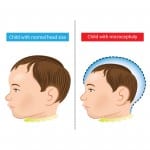Hello and welcome to this week’s Medical News Summary blog. As usual, the following information covers the latest in medical and health news dating from the 28th February to the 6th March, 2016.
Junior doctors strike latest news

The BMA ignored lawyers’ advice before launching a judicial reviews over the new contracts for junior doctors, it has emerged. A judicial review is a procedure by which a judge reviews the lawfulness of a decision or action made by a public body, such as the government. In this instance, the BMA’s lawyers had advised the association that the planned legal action had a “greater than 50%” chance of success, but they also advised that the planned judicial review should remain a last-resort option in order to make it easier for the health secretary, Jeremy Hunt, to re-open negotiations. Despite this, the BMA announced its plans to launch the review on Tuesday last week. The association’s lawyers stated that this judicial review in particular could be very costly and that it is likely to be a “considerable drain of the BMA’s internal resources”.
Zika Virus

It has been reported that a Zika vaccine could begin human trial phase later this year. Dr Anthony Fauci of the National Institute of Allergy and Infectious Diseases is hoping to start trials in the US by September. The potential Zika vaccine uses genetic information of the virus that has been synthesised in labs, rather than taken from the live virus. The hope is that upon insertion into the body, it will trigger an immune response. Then, if the person becomes infected with the virus, the body is ready to fight it.
How to prevent nut allergies

Feeding babies peanuts could protect them from nut allergies. According to scientists, babies that are introduced to nuts often are likely build up a lasting tolerance. Scientists at KCL have been following hundreds of children for over 10 years to investigate whether exposure to nuts prevents the development of potentially lethal allergies. The scientists discovered that babies who regularly consumed nuts in the first year of life built up a tolerance.
Cancer’s weakness found by scientists

Scientists believe they have found a way in which to train the immune system to attack and kill cancers. The research has been carried out at UCL, where researchers have discovered a way of identifying unique markings in a tumour (it’s ‘Achilles heel’), which enable the body to target and kill the disease. Unfortunately, this very personalised method is expected to be expensive, and has not yet been trialed on human patients. Whilst this bespoke use of immunotherapy is far from being an imminent cure for cancer, scientists are saying the discovery is ‘exciting’, implying the treatment’s potential even in such early days.
Uploaded by Roya on 7th March 2016
